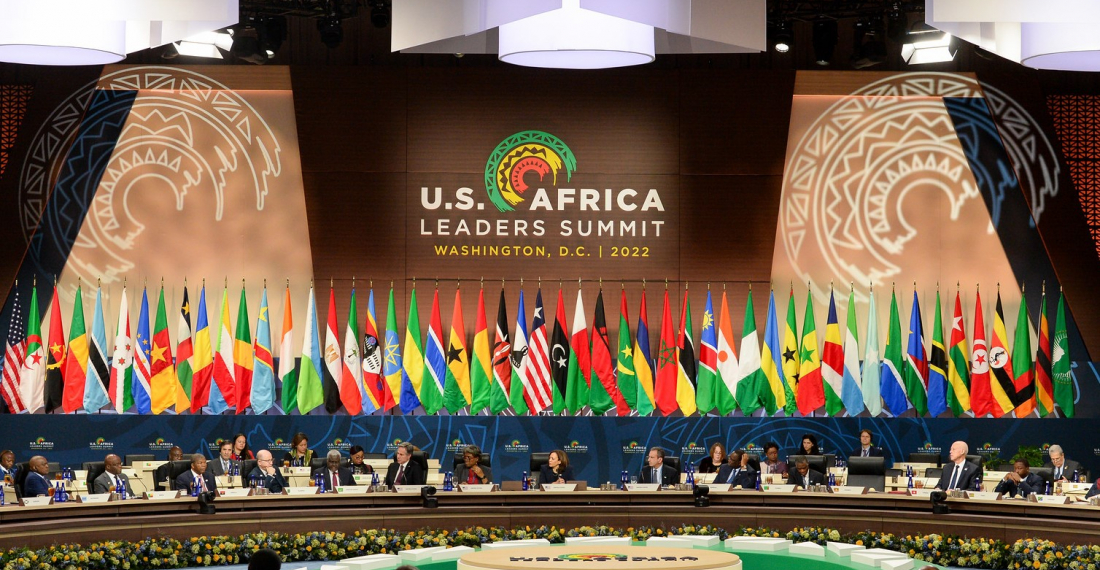US president Joe Biden hosted the leaders of 49 African nations in Washington DC 13-15 December sending a strong signal of US determination to increase its engagement with the African continent
A read-out from the US State Department said that "the 3-day summit continued efforts to strenghten ties with African partners based on principles of mutual respect and shared interests and values. It also served as an opportunity to listen to and collaborate with African counterparts on key areas the United States and Africa define as critical for the future of the continent and our global community. "
Delegations from all 49 invited African countries and the African Union, alongside members of civil society and the private sector attended the summit. The President, Vice President, and members of the US government engaged extensively with leaders throughout the Summit.
The first day kicked off with a focus on the vital role of civil society and the strength of our African diaspora communities in the United States. It featured sessions on topics ranging from trade and investment; to health and climate change; to peace, security, and governance; to space cooperation.
The second day focused on increasing two-way trade and investment at the US-Africa Business forum CEOs and private sector leadership from over 300 American and African companies convened with the Heads of Delegation to catalyze investment in critical sectors, including health, infrastructure, energy, agribusiness, and digital. Biden was at hand to make the closing remarks at the Forum, and later hosted all 50 Heads of Delegation and their spouses for dinner at the White House.
The third and final day was dedicated to high-level discussions among leaders, with President Biden opening the day with a session on partnering on Agenda 2063—the African Union’s strategic vision for the continent. The president closed the summit speaking during a discussion on food security, a critical issue for our African partners who have been disproportionately impacted by the rise in food and fertilizer prices and disruptions to global supply chains as a result of Russia’s war against Ukraine.
The summit has received a lot of attention across the world, as many see it as an expression of US will to challenge the creeping influence of China and Russia on the African continent.
The BBC Senior Asia correspondent, Anne Soy said
"Africa appears to be the potential bride being courted by suitors from across the world. Each is keen to sweeten the deal, but there seems to be an acceptance that these days, insisting on an exclusive relationship with African countries may no longer be tenable. Washington is fighting for attention with Beijing, and to some extent Moscow, and the just-concluded US-Africa Leaders Summit is the latest example of this struggle." But Soy says that unlike the previous Trump administration that centred its Africa policy around countering what it saw as a "predatory" China this week's rhetoric from the White House showed a different approach.
"First of all, the word "China" did not pass President Joe Biden's lips in his main address to the African leaders on Wednesday. US Secretary of State Anthony Blinken had given some hint to this approach when, during his first visit to the continent he said: 'Our Africa policy is about Africa, not China.' Nevertheless, there is no doubt about the rivalry and the US made clear its intention to promote and expand its interests in health, environment, clean energy and security as well as trade."
Commonspace.eu political editor said in a comment,
Russia's invasion of Ukraine was a wake-up call for western countries in many ways, not least when it came to mustering support in the Global South for a unified position against Russian aggression on its smaller and weaker neighbour. Most countries in the Global South initially preferred not to take a position, abstaining on key resolutions in the United Nations condemning the Russian aggression. The situation exposed a serious weakness in the west's ability in getting its message across to leaders in Africa, Asia and Latin America on what it considered an existential issue.
The gathering in Washington DC this week showed that America is fighting back, and is willing to take relations with Africa seriously.
The US-Africa summit comes only days after China's president Xi travelled to Riyadh where he held summits with the leaders of Arab States, and separately with those of the six GCC countries. The events in both Washington DC and Riyadh were characterised by impeccable choreography, something that often appears to be missing when the other kid on the block, the EU, hosts similar events. Africa and the Middle East are Europe's immediate neighbours. EU's engagement with both is substantial but visibility remains an issue. In a time in international relations, when countries are being offered options and choices about who to engage with and how, choreography is a factor - even if it should never be the most determining factor. In this regard the EU can learn a thing of two from the proceedings in Riyadh last week, and those in Washington DC this week."
Related content: Monday Commentary: The free market in foreign policy on display as Xi meets the Arabs
source: commonspace.eu with the US State Departments, BBC and agencies
photo: The third day of the US-Africa summit in Washington DC saw the leaders of 49 African countries meeting with US president Joe Biden (picture courtesy of The White House).






